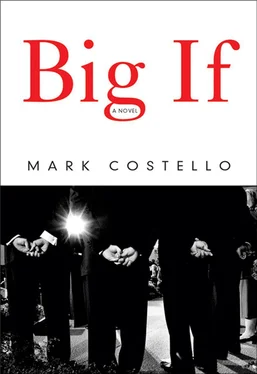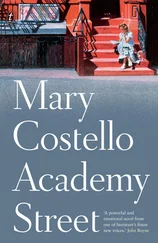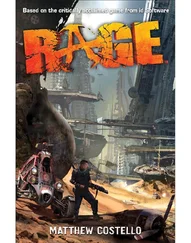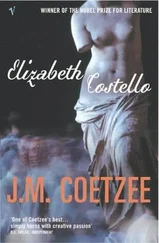Jens stayed in the car, reading Mathemagic , or he ventured out and stood on the edge of the long driveway, watching Boyle’s sons play H-O-R-S-E against the three-hearse garage. Boyle had four sons, scrappy, loud, athletic boys, groomed and destined to be preppy undertakers. The Boyle boys played H-O-R-S-E and many variations, S-M-E-G-M-A, M-U-C-U-S, S-P-U-T-U-M — being sons of a mortician, they had an interest in effluvia and knew all the latest gross-out words. Jens, standing on the grass, watched the active Boyle boys. Jens looked like a Martian, like an aphid, like another life form altogether.
Peta Boyle was the mortician’s daughter, a year ahead of Vi in school. Peta’s full name was Petulia Marguerite, but if you called her anything but Pet (her family nickname) or Peta (as in, pet a pet), she was apt to call you something nasty back. Vi and Peta ran through sprinklers or played hide-and-seek.
The oak tree by the table was their counting place. Vi would shut her eyes and kiss the bark as Peta hid. Vi counted, One one-thousand, two one-thousand, three one-thousand , nonsense numbers used by children not to measure time, but to pass it. It took a second to say one-thousand, roughly equal to a Mississippi. Peta in her yellow dress slipped between the trees. She was never any good at hiding. Vi knew even as she counted ( six one-thousand, seven— ) that Peta would hide behind the metal garden shed. Vi finds her without trying, and now Peta’s kissing bark, one one-thousand, two one-thousand . Peta searches down the yard, but Vi’s already gone and now Peta’s crying in the doorway of the shed. Boyle’s boys are fighting, who’s a S-M-E-G and who’s a S-M-E-G-M. Jens hikes, slope-shouldered, up the drive, as the fathers talk about their common things, business, children, politics, undertaking, underwriting.
Vi traveled with her father in the summerand when school was out. She remembered paper trains and tractor-trailers overturned, but of all the things she saw, the fires in the houses made the permanent impression. It was always a slum bungalow by the harbor in the town. Lobstermen lived back there. Coming up the street in her father’s car, Vi saw the wooden parlor traps stacked in the backyards for the winter, the trap-towers bigger than the houses.
It was always Christmas, always cold, and the fires always started in the plug behind the tree. What the fire didn’t total, the firefighters did, with their boots and pikes and high-pressure hoses. Vi and her father usually arrived after the fire marshals had declared the fire out. By then, the water-slurry-foam, dripping from the eaves and the bare trees in the street, had frozen into huge smooth cookie-batter oozes, rounded, sparkling, fanciful, a wonderland in what was once the family room. They toured the ground floor with a flashlight and a magic guide named Mullen from the county arson squad. Not that this was arson or suspicious-origin. Mullen pointed to the dangling remains of the wall outlet, noting the char-path to the stairs, black and straight, like a road. Fires are intelligent. They process information. Where is air? Where is fuel? They burn and decide. They act and choose a path.
Mullen had a scratchy cough and offered them Sucrets. He took one for himself and said the kids’ rooms were closest to the landing on the stairs, one of them’s at Shriners, the other one’s okay. Mullen said the tree, the creche, all the window candles, and a motorized reindeer on the lawn were pulling power through extensions from the plug behind the tree, that one there — see it, Walt? Clearly fiddled with, goddamn do-it-yourselfers. Note the tool marks on the wall, wires probably heated. The drapes were made of rayon and the tree was dry.
“Poof,” said Mullen quietly.
Walter asked for light. Mullen put the beam on the tool marks. Walter took a picture with a flash.
This was Christmas, growing up — a restless week away from school, the whole town snowbound, the beaches battered, empty.
Walter in the den wore his cardigan. He hunted through the dial for a single station not playing Perry Como Christmas hits.
Evelyn was in the kitchen, slow-basting a pork loin. She said, “Oh for Pete’s sake, Walt, get off your high horse. Let’s have a carol, just this once. It’s Christmas and the melodies are pretty.”
Vi stood on a chair at the kitchen table, pushing cookie cutters into dough, first circles and then stars. Jens was on the shoveled driveway, trying to enlist one of the Dingos in a game of fetch. Jens threw a tennis ball. Dingo watched it bounce away. Jens chased the ball and threw again. Dingo loved this game.
Evelyn sang along with Perry Como. Hark! The herald angels sing glory to the newborn king…
Her voice was light and high and surprisingly pretty. She said, “It brings me back to dear old Braintree. Push a little harder, Vi.”
Vi’s mother was a Randle from Braintree, Massachusetts, and Dear Old Braintree was a phrase she used to indicate a world, Boston’s lost South Shore of 1951. Every family had a maid, dinner was at six, potatoes were ubiquitous and mashed. Every mother wore a fur and every father took the Boston-Maine, which they never called the B&M, sounded smelly somehow, and Vi’s Grampa Randle manned the fearless masthead of the town newspaper, battling corruption and cupidity not just in Braintree but in Hingham too.
Walter said, “It’s a song about singing about nonsense. Why would it bring you anywhere?”
Evelyn was talking to her daughter now. “We used to sing those songs, Vi. I remember standing on the green with my Walker cousins. I remember Dolly Davis at the dancing school. I remember going shopping with my mother at Filene’s. Their Santa was an Irish drunk, poor wretch, probably had a shameful secret on his conscience. Mother took me on the train and did it snow. They had to send a special train to get us, Vi. Us, of course, being every Tom, Dick, and Harry stranded on the platform at South Station, but secretly I thought the train had come for me. We filed on, Mother and I, with boxes for my brothers and a special box for me. Didn’t know what was in it. Suspected tap shoes. Dreaded that. The train they sent was wonderful, great curved plates in front, like an ocean liner’s prow, and this other thing, a huge caged fan, bigger than our car, like an ocean liner’s screw. What was this special train? A ship on land with its propeller on the front, and we blew through the snow, and Father picked us up, and I remember how warm it was, the kitchen.”
Vi said, “What was in the box?”
“A muffler,” said Evelyn. “The kind you wear around your neck.”
They heard Jens out back shouting, “You stupid goddamn dog.”
Walter suffered Perry Como in the den. He said, “The melodies are pretty, but the words — they ruin it for me.”
Evelyn said, “Don’t listen to the words.”
There was silence for a time as Walter tried. He called around the corner, “How the hell do you do that?”
They ate the loin for supper, bowing their heads as Walter read a short reflection by Mr. H. G. Wells. Later they opened gifts, which Walter said was their way of honoring the dignity of humankind.
“Whoop-de-doo,” said Evelyn, raising her wineglass in a sarcastic toast.
Vi knew the truth — it was Jesus getting born. She had heard this from Peta Boyle, who wore a kilt to school.
Walter said that Jesus was a cherished symbol of the dignity of humankind.
Peta said that Jesus was the biggest baby ever.
The day they saw the paper train derailed outside Berlinwas the last insurance trip Jens ever went on. He was thirteen that year, the age when children splinter off and abandon the old loves. Jens abandoned his old loves together in a week, ham radio and hurricanes, playing ball with dogs, riding to disasters with his sister and his dad. His new love was a beaker storage closet in the science lab at Center Effing High where the teachers kept a slow acoustic modem which connected Jens to a Hexatron 1000 timeshare mainframe donated to the high school by a company in town. The rig was obsolete even then, but Jens was changed forever. He ran models of the Big Bang (which was, he told Vi, like a train wreck in the sky, vast and long ago, zillions of times bigger than all hurricanes combined). He played Zorc and Space War down the phone lines with his friends and came across a book on how to program in Beginning Glyph, which was, he said, a computer language, like logic or like math, except it’s language, it’s you telling the computer what to do. He spent a summer getting paler in the beaker storage closet. He came out in September with his masterpiece, a program he called JENSISNUMBER1.exe, which caused a distant printer to spit out the sentence JENS IS NUMBER 1!!!!!!!!!!!!!
Читать дальше












